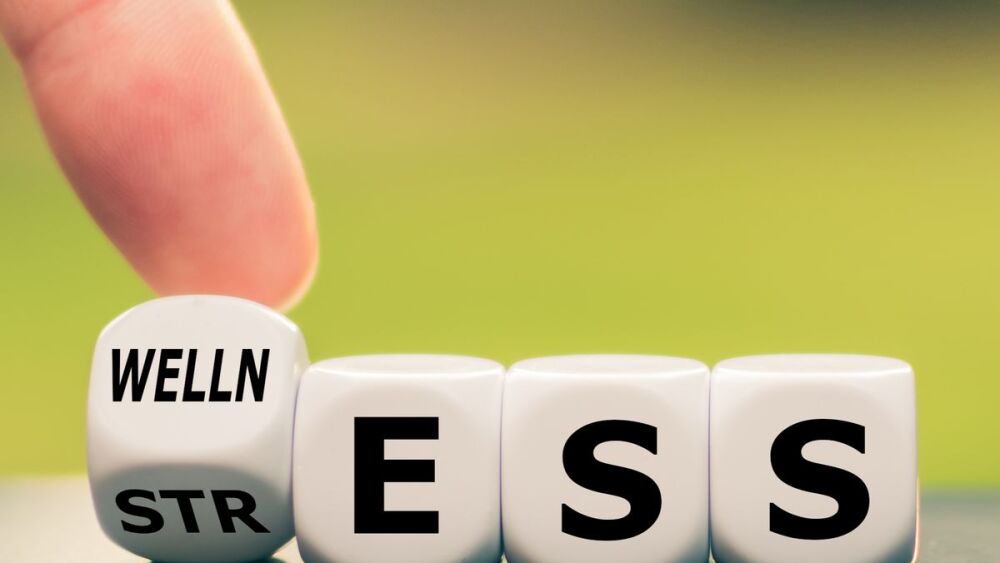In the first installment of the EMS Burnout Repair Kit series, presented by EMS1 and sponsored by Zoll, Allina Health EMS’ Nicole Holm, Richmond Ambulance Authority’s Rebecca Szeles, and Harris County ESD 11 Mobile Healthcare’s Xavier De La Rosa and Sean Simmonds offered perspective into how mental health support programs, from EAPs, to EMS chaplaincy, to peer support teams, can create psychologically healthy workplaces.
In work environment punctuated by physically demanding long hours, interrupted sleep and stressful calls, agency efforts to protect providers’ mental health are paramount to preventing burnout.
In an EMS1 webinar, sponsored by Zoll, a panel of EMS leaders shared how their agency’s mental health support programs, from EAPs that understand the needs of providers, to EMS chaplaincy and peer support teams, can create psychologically healthy workplaces. [At the end of this article, download a copy of Richmond Ambulance Authority’s Peer Support team Ethics Contract and privacy considerations]
The panel included:
- Nicole Holm, MA, BCC, chaplain with Allina Health EMS
- Xavier De La Rosa, BS, LP, NRP, FP-C, chief clinical officer for Harris County ESD 11 Mobile Healthcare
- Sean Simmonds, emergency preparedness and safety manager for the Montgomery County Hospital District
- Rebecca Szeles, a nationally registered paramedic and communications supervisor at the Richmond Ambulance Authority.
Watch now:
View on-demand: How to create a mental health-friendly environment at your service
Learn how mental health support programs can alleviate stress in the workplace
Following are takeaways from the live discussion on the correlation between mental and spiritual health and burnout.
1. Peer support can help minimize everyday stress, not just in a crisis
Paramedic Rebecca Szeles shared her experience as a member of Richmond Ambulance Authority’s Critical Incident Stress Management Team and Peer Support Program.
Peer support providers can identify the warning signs that identify that a call that may have been missed by CISM is impacting a provider. “Not every call is going to affect everyone the same,” Szeles noted, illustrating with a personal anecdote she uses in training.
Szeles’ first call was a 12-year-old pediatric arrest, but it’s not the call that stuck with her. The call that hit her hard was the triple A call she ran just weeks after losing her grandfather to the same ailment.
While it’s no surprise that CISM and peer support programs are extremely capable of helping providers after a critical incident, Szeles explained that peer support can also help providers process the calls they encounter each day, as well as daily stressors. Peers can relate to stresses at home, from finances to child or elder care challenges due to schedules.
“Someone who works every day with these providers, who can relate to what they’re going through, and who can identify the signs when someone needs help are uniquely positioned to offer that help. If we catch the signs early, we can start them towards the healing process before it gets worse,” Szeles noted.
An additional benefit to implementing a peer support program: “your peers are going to be your most motivated employees,” Szeles said. These employees can be your cheerleaders to get everybody through a difficult call or a difficult time in the company. “And by motivating your employees, you’re creating a better work environment for everybody there.”
Szeles offered these key tips for a successful EMS peer support program:
- To build a strong peer support team, you must have a culture of trust
- Only a peer can be a peer: don’t put field supervisors in a position where they must report an employee
2. Chaplaincy is an often misunderstood, underutilized asset
In her portion of the discussion, Allina Health EMS Chaplain Nicole (Nikki) Holm, MA, BCC, chaplain with Allina Health EMS, encouraged the group to consider chaplaincy with a beginner’s mindset. Holm broke down some of the common misconceptions people hold about chaplaincy:
- Myth: Chaplains offer religious support. Holm noted, “What I really like to tell people is that my particular belief system, my particular background is really irrelevant. That I am here to show up for you and whatever ways are helpful and life giving for you. And so, the hope would be that an EMS chaplain isn’t here to preach, isn’t here to pray, isn’t here to read scripture, or whatever you might think of when you think of a chaplain. It’s really to help you in whatever ways are life giving for you.” That counsel can vary. “So, if that’s nature, if that’s poetry, if that happens to be prayer, sure, I’m there for that too. But really, it has nothing to do with religion or spirituality. More so with your own deep sense of purpose and meaning, maybe your own life force. And so, we’re here for all the people in all the ways,” she added.
- Myth: Chaplains intervene to keep the situation calm. Holm shared an anecdote from Chaplain Kate Braestrup’s book, in which a family member said, “Oh, you’re here to help me, keep me from freaking out.” Braestrup responded, “I’m not really here to keep you from freaking out. I’m here to be with you while you freak out or grieve or laugh or suffer or sing. It is a ministry of presence. It is showing up with a loving heart.” “That is really what the work of EMS chaplaincy is, Holm said. “So, it’s an additional benefit in addition to EAP, in addition to peer support. It is people designated to be with their providers while they freak out or grieve or laugh or suffer or sing to show that presence of love.”
- Myth: Chaplains are there for the difficult calls. “We’re here to provide support not only in the objectively or generally difficult calls, but also in the subjectively, personally difficult calls,” Holm explained. “So, recognizing that what’s triggering for one medic is not going to be triggering for the next, or vice versa. That depending on our family histories, our backgrounds, what we have going on in our personal lives, calls that might not be difficult for anyone else, can be really difficult for one particular person. And so, our role is to provide the coverage when identified as needed for whatever reason.”
3. It’s not enough to have an EAP, without a culture and plan that makes it effective
Healthcare providers make for poor healthcare patients, Sean Simmonds, emergency preparedness and safety manager for MCHD noted. “We are givers. We are trying to help others alleviate their pain and suffering. And it’s hard for us to turn around and be the patient.”
While most healthcare agencies acknowledge mental health is a serious concern, we have very poor mental health coverage, Simmonds stressed. “We focus so heavy on making sure that our line of work is acknowledged, aggressive, and doing the best for our service areas, that sometimes we forget to include our providers in our preparation.”
Once we’ve acknowledged this fact, we need to start acting on it, Simmonds said. We may have an EAP that can provide counseling services, home life coaching and work-life balance support, he added. “But, do we have a culture where it’s OK for people to speak up to say, ‘Hey, I went through this one call and it really hurt me. It didn’t hurt me physically but it hurt me. When I went home, I started having nightmares. I had a panic attack on the way to work. I really just did not want to wake up this morning.’”
And, once we’ve built a culture where it is OK to speak out, once employees do speak up, how are we acting on it?
While a one-size-fits-all approach will not work, it’s important to have a confident plan, one you have prepared for with identified routes for providing support. “We need to be very confident in our actions so that the employees that we’re giving services to are confident that what we’re going to help them,” Simmonds said.
A mental health crisis is a disaster, just like a hurricane, a massive freeze or a tornado, Simmonds stressed. “It can absolutely derail a person’s life ... destroy financial backgrounds, family life, work life. So, it absolutely is a disaster and should be prepared for just like we prepare for fires and hurricanes and everything else.”

A mental health crisis is a disaster, just like a hurricane, a massive freeze or a tornado, Simmonds stressed. “It can absolutely derail a person’s life ... destroy financial backgrounds, family life, work life. So, it absolutely is a disaster and should be prepared for just like we prepare for fires and hurricanes and everything else.”
Photo/Getty Images
4. Be prepared to help providers through a mental health crisis
Even with all the right programs in place to support members’ mental health, agencies still must be prepared for a mental health crisis.
Chief Clinical Officer Xavier De La Rosa shared the unique partnership Harris County ESD 11 Mobile Healthcare has built with a local behavioral health hospital to support members.
The Honor Strong program at Cypress Creek Hospital is a resiliency focused, dedicated acute inpatient program created to address the unique symptoms experienced by law enforcement, firefighters, frontline healthcare workers, emergency medical personnel, active duty military members and veterans. Named after the Houston Strong motto that arose in the aftermath of Hurricane Harvey, the Honor Strong program is designed to help first responders weather a mental health storm.
The program offers a direct, private and dedicated referral line, 24/7, as well as a mental health inpatient voluntary service for first responders and military personnel staffed by certified first responder counselors who are first responders themselves.
The program offers tiered support, from a telehealth mental health assessment, to mobilizing the counselor to where the provider is, to a VIP admission to the hospital, where providers have a dedicated entrance, with their own unit and wing, to avoid being mingled with patients they may have transported themselves.
“The toll taken by these experiences on the men and women who serve in emergency roles can be overwhelming, as well as more intense and damaging than most of us can imagine,” De La Rosa noted. “And so, we’re really, really excited about the Honor Strong Program. We really look forward to growing this throughout the region and the country.”
Mental health needs are real and present in your agency
When you prepare for mental health needs and crisis, understand they’re happening now, Simmonds stressed. “There are people in your agencies that are going through mental health crisis, as we speak. They’re in my agency, they’re in yours – they’re everywhere,” he said. “It’s important that we acknowledge that and prepare for whenever they decide to speak out. It’s OK if they don’t want too. It’s absolutely somebody’s will to get to that point and kudos to them when they do. But we need to prepare for that whenever they are.”
Simmonds advised the first step to prepare for mental health support needs to be to protect privacy first and foremost. If a member divulges information on their personal life, it needs to be understood that it’s not going to go further than it needs to. A threat to themselves or others will require expanding to incorporate the right level of support, but on a need-to-know basis only.
Fill out the form below to download your copy of the Richmond Ambulance Authority’s Peer Support team Ethics Contract and privacy considerations.














